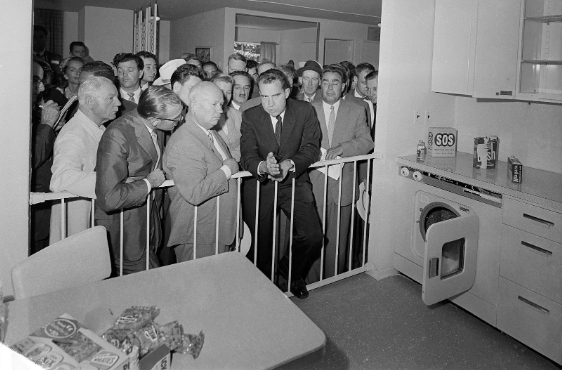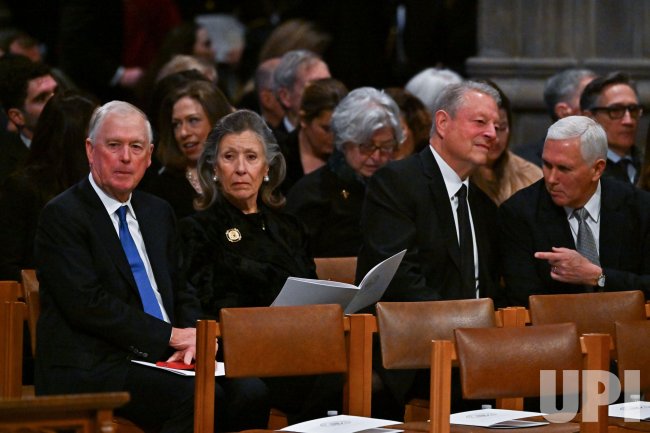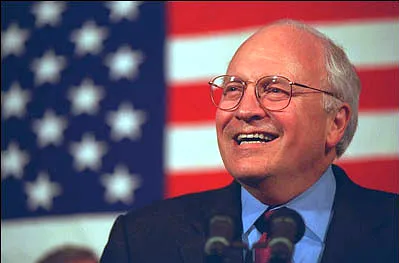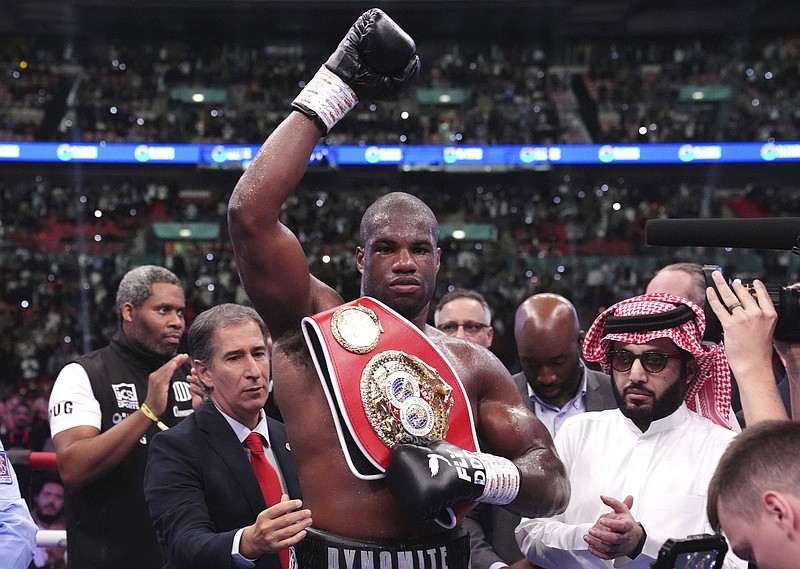Watergate is among the most recognizable and infamous scandals in American history, so much so that any scandal that has taken place since the 1970s investigation into the dirty tricks used by the Nixon-White house during the Nixon admin has the added suffix of “-gate” e.g “Elsagate” or “Russiagate” or the much more recent “signalgate”. The common knowledge surrounding Watergate revolves around the 1972 Break In Democratic National Convention at the Watergate Hotel in Washington D.C, which was then looked into by Bob Woodward and Carl Bernstein, resulting in a Paper Trail which ultimately led to the resignation of Richard Nixon. However, the story of Watergate is much deeper than a failed burglary at the DNC Headquarters in 1972, and served as the backdrop for many of the scandals and incidents surrounding the 1972 Campaign Season, and can even be dated back to the 1968 Campaign Season between Richard Nixon and Hubert Humphrey, or even back to the Nixon´s own upbringing.
In order to understand Watergate, one must first understand Richard Nixon. The man who presided over The White House during Watergate, and the man who resigned the presidency (the only US President to do so as of 2025) in its aftermath. Nixon was born in Yorba Linda California, a town slightly smaller than our own Santa Fe about 40 miles Southeast of Los Angeles. Nixon was born to Hannah and Francis Nixon, who moved to California from Ohio in search of green pastures. The Nixons were a poor, and hardline quaker family unit that seemingly always encountered hardship. Nixon went to the prestigious Whittier College for his undergraduate degree, where he founded the “Orthogonian Society” which revolved around the ethics of Hard Work, and developed a hatred for the “Franklins” of Whittier College, richer students who seemingly lacked the will and cunningness of Nixon. These factors influenced Richard Nixon’s views regarding Washington later in his life. Nixon would join the military during World War II, serving in the Navy, before running for congress in his homefront house district which encompassed Yorba Linda, and winning in an upset against Jerry Voorhis in a year where Harry Truman and Democrats as a whole were predicted to take major losses (Perlstein, 2008). Later on, Nixon ran to become a Senator to represent California as a whole in Congress, Nixon developed a reputation for being adjacent to the more conservative class of Republican Politicians in the aftermath of World War II, even being a part of the controversial House Un-American Activities Committee, which was meant to root out suspected communists in the Federal Government (Nixon, 1962). This caucus of conservatives in congress revolved around the ideals of Robert A. Taft (the son of President William Howard Taft), an arch-conservative from the State of Ohio whose personal beliefs and philosophies would start to shift the Republican Party towards the right in the wake of World War II, away from ideas revolving around the “Liberal Consensus” of the mid 20th century and more towards the socially, hawkishly, fiscally conservative Republican Party of the contemporary (Edwards, 2020). In the wake of the 1952 Campaign Season, Nixon would receive a call that would change his life forever. The favorite to win the election in the wake of an unpopular Democratic Party, General Dwight Eisenhower, had chosen Richard Nixon to be his Vice President. This decision came as a treatise to the more conservative members of the Republican Party in the 1950s (Berger, 2013), as Eisenhower, despite being popular due to his status as a War Hero for his actions/leadership of American forces during the Second World War, was a much more Liberal Republican that what many arch-conservatives liked, with Eisenhower supporting ideals revolving around a continuation of FDR era welfare programs (Eisenhower, 1953), supporting progress regarding Civil Rights in mid 20th century America (Eisenhower, 1957), as well as distancing himself from the isolationist views held by conservatives like Taft in the days succeeding World War II (Eisenhower, 1952).
Dwight Eisenhower won the 1952 election in a landslide, coasting off of his own status as a War Hero, generally liked political views, as well as running in the wake of the unpopular Truman administration which did not run for re-election in 1952. The DNC instead selected Adlai Stevenson, the popular governor of Illinois, to run. Eisenhower beat Stevenson 442-89, with Stevensons best margins being in the Deep South. The Eisenhower Campaign, despite the large margin of victory over their opponents, was not without its roadblocks. With Nixon being controversial due to a scandal surrounding accusations that he took money from the Eisenhower Campaign for personal use. Nixon exonerated himself from this controversy after the delivery of the Checkers Speech to a nationwide audience, wherein Nixon stated that any wrongdoing on his part was not intentional, but he would be keeping a small dog named ¨Checkers¨ gifted to his family (Nixon, 1952). Nixon’s time in the Eisenhower Administration was marked by a few significant events. Namely, Eisenhower´s health decline which rendered him unable to do his job as POTUS due to health related issues (namely a 1955 Heart Attack) which made Nixon the technical-POTUS for a short period of time in the 1950s, as well as the ¨Kitchen Debate¨ between himself and the leader of the USSR, Nikita Khrushchev (Nixon, 1962). This debate revolved around whether the abundance of goods available to Americans mattered if they were not accessible, if American materialism trapped Americans in a cycle of consuming/spending, as well as a comparison of progress between the United States and Soviet Union (Kruschev K & Nixon R, 1959). This even being significant, as it was between two of the most powerful people on the planet, with wildly different philosophies, undertaken in a calm and measured manner.
After two terms as Dwight Eisenhowers Vice President, Richard Nixon ran to become the President of the United States in 1960. Richard Nixon went the distance with John F. Kennedy, losing this election for a slew of reasons. Among these reasons, were conservative dissatisfaction with the direction of the Republican Party. This dissatisfaction was partly due to the actions of the Eisenhower administration in terms of their advancement of Civil Rights Legislation, but also due to Nixon´s choice for VP, the Ambassador to the United Nations under Dwight Eisenhower, Henry Cabot Lodge Jr. Lodge was a plain, soft spoken candidate who empathized more with the liberal faction of the Republican Party, much to the chagrin of conservatives both inside and outside of the Republican Party (Nichter, 2020). Lodge added to Nixon´s foreign policy focused campaign, which had a hawkish approach to developments in Vietnam and Cuba (Smith, 1960), and also came from John F. Kennedy´s homestate of Massachusetts, which many hoped would put the state in play during the 1960 election (Donaldson, 2007). Kennedy on the other hand, had a much greater media presence in an era where televisions were becoming increasingly common in America, and offered an olive branch to Southern Voters with the selection of Lyndon Johnson as his Vice Presidential candidate (Conan, 2008). The 1960 Presidential election came down to the wire in terms of voting margins, with states like Hawaii being decided by less than 120 votes. After this election, Nixon would later run for Governor in the State of California in 1962, losing to Pat Brown-whose son would also become California Governor and was a candidate for the position of POTUS. This loss, which occurred during a particularly costless midterm for The Kennedy Administration, led to Nixon announcing his supposed retirement from politics during a post-election press conference. Nixon and Kennedy were on complete opposite ends of the scale in terms of Politicians, whereas Kennedy came from a wealthy family and was virtually thrust into politics by his own father, Joe Kennedy, Nixon grew up in near poverty and had to claw his way throughout politics, it was not just Republicans who lost in this election, it was the ego of Nixon as well.
After Nixon’s loss in the 1962 Presidential election, the former VP would become a Senior Partner at an Upstart New York Law Firm, where he would represent Pepsi at the legal level (Li, 2018), and argue against Time Magazine in front of the United States Supreme Court (Time, Inc. v. Hill.). Nixon did help the Goldwater campaign in 1964, which built their campaign on the paranoia and fear of the 1960s, such as suggesting that President Lyndon Johnson’s ¨Great Society¨ Programs which promoted Urban Renewal and Welfare Programs to fight Poverty in America were responsible for rising crime in the 1960s (Kenworthy, 1964), as well as being vehemently against the 1964 Civil Rights Act as he believed there was ¨no constitutional basis for the exercise of Federal regulatory authority¨ in terms of the act as it was written (Goldwater, 1964). Furthermore, Goldwater suggested the use of nuclear weapons in the Vietnam War in the immediate aftermath of the Gulf of Tonkin incident, as well as opposing Cold War de-escalation treaties of this time between the US & The USSR (Jurdem, 2020, pages 161-180). Goldwaters hard shift to the right led to the development of several ads by the LBJ Campaign which targeted certain viewpoints he held which were unpalatable to the modern voter of this time, most famously the ¨Daisy¨ ad which showed a little girl playing in a field of flowers being caught in the crossfire of a nuclear war and dying, as well as President Johnson’s ¨Confessions of a Republican¨ ad which showed a disgruntled Republican Voter showcasing his frustrations with the Goldwater campaign.
Of course, the 1964 Presidential Election was a historical landslide in favor of President Johnson, with the exact Electoral Score being 486-52 in favor of the Incumbent Johnson, partly due to the ad campaign of Lyndon Johnson which made great use of Goldwater’s unsavory policy views. However, there were a few interesting tidbits that came from this election, such as Goldwaters sweep of the Deep South from Louisiana to South Carolina; this area being Republican Kryptonite during the earlier half of the 20th Century (Black E & Black M, 2002, pages 62-66). Goldwater managed to win over this section of the country by emphasizing his hyper-conservative beliefs to Southern Democrats who had opposed legislation like the 1964 Civil Rights Act. Furthermore, Goldwater made heavy use of a prominent Hollywood actor in the Republican Primary, even airing a speech made by this prominent Hollywood actor in the weeks before the election across the nation. This speech, coined the ¨Time For Choosing¨ speech, was made by Bedtime for Bonzo Star and Screen Actors Guild of America president Ronald Reagan. The airing of this speech launched Reagan into the national spotlight, as well as showcasing his conservative views to a national audience (Reagan, 1967). Reagan later ran for the position of California Governor in 1967, where he showcased his conservative viewpoints from a policy perspective, such as his vehement opposition to demands made by the United Farm Worker of America led by Cesar Chavez over the course of his governorship (Goodman, 2004).
During the next Republican Primary in a Presidential Race, a very unlikely candidate came out on top of a very contentious race which included the Governors of Michigan, New York, and California. These respectively include George Romney out of Michigan, who worked with people all across the political aisle of the Mitten State, marching alongside Martin Luther King (Allen, 2007) and revolutionizing Michigan Civil Rights Policy through Housing Initiatives in which he worked with UAW leader, Walt Reuthers as well as being against the Vietnam War (Coleman, 2021). As well as Governor Rockefeller out of New York and the recently-elected governor of California, Ronald Reagan. These candidates all faltered after the re-emergence of Richard Nixon in 1968, Nixon’s campaign was somewhat similar to his 1960 campaign in terms of maintaining a Foreign Policy Focus, changing his main points from being based largely on Cuba, Detente, and a promise to ¨Keep the Peace¨ (Smith, 1960) to one based on ending the unpopular war in Vietnam (Nixon, 1968). As Republicans had only shifted right since 1960, he extended an olive branch to the more conservative minded voters of Post-Goldwater America by selecting Spiro Agnew to be his Vice President. Agnew was the Governor of Maryland during this time, and was known for his conservative beliefs, such as an outright dismissal of institutionalized racism in 1960s America after discoveries made by the Kerner Commission, a Presidential Commission made by President Lyndon Johnson to investigate Race Riots during the 1960s. Agnew said, in regards to the Kerner Commission that “It is not the centuries of racism and deprivation that have built to an explosive crescendo, but that lawbreaking has become a socially acceptable and occasionally stylish form of dissent” (Levy, 2013, page 713) in a statement similar to something that Barry Goldwater may say. Nixon won the 1968 Presidential Election, after going up against Lyndon Johnson’s VP, Hubert Humphrey, as well as Southern Democrat turned third party spoiler candidate Henry Wallace, who attempted to court dissatisfied conservative-minded voters in the Deep South who saw Richard Nixon as being too progressive (Wallace, 1968). Nixon won this race by running a moderate, republican unifying campaign which appealed to voters largely due to infighting within the Democratic Party which only accellerated after the assassination of Bobby Kennedy Sr. Along with making extended television appearances through programs like The Nixon Answer, where the former VP answered questions asked by residents of the state where the candidate was campaigning (Guo, 2017) as well as appearing on the show Rowan and Martin’s Laugh in for a short segment (Martin D & Rowan D, 1968, Season 2 Episode 16).
The Presidency of Richard Nixon was one defined by, at some points, some of the highest points of American History, alongside what have been arguably the lowest. Richard Nixon presided over the Apollo 11 mission which put Neil Armstrong & Buzz Aldrin on the moon, even making a phone call to the two astronauts as they were on the lunar surface (Nixon, 1969a). Nixon also introduced the Family Assistance Plan into National Law which greatly improved the Welfare System of the United States, actively defining terms and lowering taxes for the nations poorest as well as funding Job Training programs across the Nation (Nixon, 1969b). as well as overseeing the Comprehensive Health Insurance Plan, which required employers to put their employees onto this Federal Healthcare Plan and put a greater portion of Americans onto a more comprehensive healthcare plan overseen by the Federal Government (Nixon, 1974). Nixon also signed legislation which established the Environmental Protection Agency as well as regulations on corporations in order to protect the environment (Rinde, 2017). At the Foreign Policy level, Nixon eased Cold War tensions through the signing of the SALT I treaty with the USSR which established limits on nuclear devices (Strategic Arms Limitation Treaty I, 1972), as well as the revolutionary establishment of formal relations with the People’s Republic of China (Nixon, 1972). Nixon also oversaw the end of the Vietnam War, emphasizing a need for a ¨Peace that lasts¨ to come to fruition after the end of the highly controversial war (Nixon, 1973).
Nixon had his issues on the legislative level, however. The ¨Nixon Shock¨ of the 1970s led to Nixon freezing both wages and prices for 90 days (Nixon, 1971b) as allotted to him through the Economic Stabilization Act of 1970 (Rigby, 1979), which only enhanced issues pertaining to energy and food shortages later in the 1970s when Nixon’s Wage and Price Freeze expired (Wallace, 2024). Nixon also eliminated the Gold Standard at this time due to concerns revolving around the relationship between US Gold Reserves and Foreign Nations at this time (Garten, 2021), this move came with simultaneous praise and concern from Americans revolving around the end of the Gold Standard and fear around the devaluation of the American Dollar (Bernstein, 1984). At the Foreign Policy level, Nixon’s support of Israel during the Yom-Kippur war led to Muslim Nations in the Middle East declaring an Oil Embargo on the United States which was a key-contributor to the Energy Shortages of the 1970s (Reich, 1995). The Nixon administration also attempted to halt the release of The Pentagon Papers, which detailed misinformation regarding Vietnam which was given to the US Public (New York Times Company v. United States, 1971). Furthermore, the peace that came in Vietnam under the Nixon Administration came at a cost. Nixon’s actions in the war, such as the implementation of his ¨Madman Theory¨ which supported the bombing of non-military targets in North Vietnam as well as extending the war into Cambodia (Burr & Kimball, 2015), wherein atrocities similar to those committed in Vietnam were committed in Cambodia as well (Baker, 1987, pages 121-123). The policy of Destabilization in Chile to overseen by Nixon in an effort to dispose of Salvador Allende led to a coup led by General Augusto Pinochet (Doubek, 2023), declaring in a 1970 Memorandum to top members of the President’s Cabinet that US Policy towards Chile would be to ¨prevent it´s consolidation and limit its ability to implement policies contrary to U.S. and hemisphere interests¨ (Nixon, 1970).
Of course, you cannot talk about the Presidential Administration of Richard Nixon without discussing the Watergate sized Elephant in the Room. What is now known as ¨The Watergate Scandal¨ was a consolidated effort to turn the tides of the 1972 Election in favor of Richard Nixon through a series of consolidated, and highly illegal efforts which went much further than just the attempted wiretapping and robbery of the Democratic National Convention Headquarters at the Watergate Hotel in Washington D.C during the 1972 Election Season. These efforts involved: the kidnapping and drugging of Martha Mitchell (wife of US Attorney General, John Mitchell) (Smith, 2022), attempts to burglarize and ¨bomb¨ the Brookings Institution in search of classified documents pertaining to The Democrat Party (Nixon, 1971a), the creation of false firsthand accounts which alleged that Democrat Candidates Henry Jackson had inappropriate relations with a minor (Thomas, 2022), and that Edmund Muskie held discriminatory beliefs against French-Canadians, leading to the latter having a mental breakdown during a campaign rally (Bernstein & Woodward, 1972). These extensive operations were done by members of the Nixon White House who were a part of the Committee to Re-Elect the President. The extensive campaign to illegally sway the odds of the 1972 election in favor of Richard Nixon was uncovered by Washington Post journalists Carl Bernstein and Bob Woodward after their investigation into the attempted break-in at the Watergate Hotel (Bernstein & Woodward, 1974), which led to a trail of breadcrumbs which led to the resignation of Richard Nixon, only after multiple members of his White House staff were either arrested or resigned from their positions after extensive criminal investigations alongside a Senate Probe (Bernstein & Woodward, 1976). The issue of Watergate overshadowed the resignation of Spiro Agnew, who had resigned due to an unrelated scandal involving his corrupt political practices, revolving around bribery and tax evasion during his tenure as Governor of Maryland (Naughton, 1973). In his place was the US House of Representatives leader, Gerald Ford, who assumed the position of US President after the resignation of Richard Nixon.
Ford could never escape the shroud of Watergate throughout his presidency, especially after pardoning Nixon for ¨the good of the country¨ which led to intense scrutiny, and allegations of a ¨corrupt bargain¨ wherein Ford would assume the presidency in return for Nixon’s pardon. This led to a loss in the 1976 Presidential Election to Jimmy Carter, who also could not escape the post-Watergate trauma felt by the American Electorate despite running a campaign based around his status as an outsider due to his White House Chief Of Staff´s alleged cocaine usage. The spectre of Watergate would haunt the presidency for years to come, most prominently in the case of Bill Clinton and the alleged perjury that took place in correspondence to his affair with Monica Lewinsky. Nixon on the other hand, despite being shunned to a point where his successor, Gerald Ford, would not name him in Presidential Press Conferences (Woodward, 2000), had rehabilitated his image to be that of a ¨Wise Elder Statesman¨ in the years between his resignation and death. While Watergate may only be seen as a ¨Failed break in¨ in the eyes of the public, its true correspondence runs much deeper than the botched break in which led to the resignation of Richard Nixon, in fact, it can be described as the ultimate culmination of Nixon’s own psychological shortcomings that derived from an upbringing in a family surrounded by poverty, and seeing others attain easily what he had to fight tooth and nail for. Furthermore, Watergate was not simply a ¨botched break in¨ but a conspiracy against the DNC which led all the way to the Oval Office, where candidates such as Scoop Jackson or Edmund Muskie were unscrupulously slandered, lied about, and framed in order to further the goals of the Nixon administration.
Works Cited:
Allen, M (2007) ¨Witnesses recall Romney-MLK march¨ Politico, https://www.politico.com/story/2007/12/witnesses-recall-romney-mlk-march-007524
Baker, M (1987) ¨Nam¨ Abacus History, p. 121-123.
Berger, B (2013) “Eisenhower and Nixon: Secrets of an Unlikely Pair” U.S. News & World Report, https://www.usnews.com/opinion/articles/2013/02/15/eisenhower-and-nixon-secrets-of-an-unlikely-pair
Bernstein C & Woodward B (1972) ¨FBI Finds Nixon Aides Sabotaged Democrats¨ Washington Post, https://www.politico.com/gallery/2012/06/16-worst-political-dirty-tricks/000188-002247-fullscreen.html
Bernstein C & Woodward B (1974) ¨All the President’s Men¨ Simon & Schuster
Bernstein C & Woodward B (1976) ¨The Final Days¨ Simon & Schuster
Bernstein, E (1984) ¨Reflections on Bretton Woods¨ Federal Reserve Bank of Boston, file:///media/fuse/drivefs-7b41a2699b7c6a2dadd75835a81e78eb/root/conf28b%20(1).pdf
Black E & Black M (2002) ¨The Rise of Southern Republicans¨ Harvard University Press, pages 62-66.
Burr W, Kimball J (2015) “Nixon, Kissinger, and the Madman Strategy during Vietnam War” George Washington University, National Security Electronic Briefing Book #517. https://nsarchive2.gwu.edu/nukevault/ebb517-Nixon-Kissinger-and-the-Madman-Strategy-during-Vietnam-War/
Coleman, K (2021) ¨On this day in 1967: Gov. George Romney says he was ‘brainwashed’ on Vietnam War¨ Michigan Advance, https://michiganadvance.com/briefs/on-this-day-in-1967-gov-george-romney-says-he-was-brainwashed-on-vietnam-war/
Conan, N (2008) ¨Martin Luther King and Three U.S. Presidents¨ NPR, https://www.npr.org/2008/01/21/18286850/martin-luther-king-and-three-u-s-presidents
Donaldson, G (2007). “The First Modern Campaign: Kennedy, Nixon, and the Election of 1960” Rowman & Littlefield. pp. 90–91
Doubek, J (2023) ¨The U.S. set the stage for a coup in Chile. It had unintended consequences at home¨ NPR, https://www.npr.org/2023/09/10/1193755188/chile-coup-50-years-pinochet-kissinger-human-rights-allende
Edwards, L (2020) “Lessons for the GOP From “Mr. Republican” “ The Heritage Foundation, https://www.heritage.org/conservatism/commentary/lessons-the-gop-mr-republican
Eisenhower, D (1952) “President Dwight D. Eisenhower Defends Character and Record of Gen. George C. Marshall” The George C. Marshall Project, https://www.marshallfoundation.org/articles-and-features/always-serving-to-the-best-of-his-ability/
Eisenhower, D (1953) ¨SPECIAL MESSAGE TO THE CONGRESS TRANSMITTING PROPOSED CHANGES IN THE SOCIAL SECURITY PROGRAM¨ Social Security
Administration, https://www.ssa.gov/history/ikestmts.html#specialEisenhower, D (1957) ¨Executive Order 10730: Desegregation of Central High School”National Archives, https://www.archives.gov/milestone-documents/executive-order-10730#:~:text=This%20executive%20order%20of%20September,Court%20ruled%20in%20Brown%20v.
Garten, J (2021) ¨How the ´Nixon Shock´ Remade the World Economy¨ Yale Insights, https://insights.som.yale.edu/insights/how-the-nixon-shock-remade-the-world-economy
Goldwater, B (1964) ¨Text of Goldwater Speech on Rights¨ The New York Times, https://www.nytimes.com/1964/06/19/archives/text-of-goldwater-speech-on-rights.html#:~:text=I%20find%20no%20constitutional%20basis,50%20sovereign%20states%20have%20reserved
Goodman, A (2004) ¨Reagan, Class and Organized Labor: “One Of The Most Damaging Presidents In American History” ¨ Democracy Now, https://www.democracynow.org/2004/6/11/reagan_class_and_organized_labor_one
Guo, J (2017) ¨What Roger Ailes did to America¨ Vox, https://www.vox.com/2017/5/19/15660888/roger-ailes-america-trump-television-fox-news
Jurdem, L (2020) ¨ “The Media Were Not Completely Fair to You”: Foreign Policy, the Press and the 1964 Goldwater Campaign¨ Journal of Arizona History, Volume 61, Number 1, Spring 2020, pp. 161-180. https://muse.jhu.edu/pub/325/article/751632/pdf
Kenworthy, E (1964) ¨Goldwater Links The Welfare State To Rise in Crime¨ The New York Times, https://www.nytimes.com/1964/09/11/archives/goldwater-links-the-welfare-state-to-rise-in-crime.html
Kruschev N & Nixon R (1959) “The Kitchen Debate – transcript” Central Intelligence Agency, https://www.cia.gov/readingroom/docs/1959-07-24.pdf
Levy, P (2013) ¨Spiro Agnew, the Forgotten Americans and the Rise of the New Right¨ The Historian, page 713.
Li, V (2018) “Nixon in New York” American Bar Association Journal, https://www.abajournal.com/gallery/nixon_in_new_york/1708
Martin D & Rowan D (1968) ¨Guest Starring Barbara Feldon¨ Rowan & Martins Laugh In, Season 2 Episode 16. https://www.youtube.com/watch?v=3e9iWizfsm8
Naughton, J (1973) ¨Agnew Quits Vice Presidency And Admits Tax Evasion In ’67; Nixon Consults On Successor¨ The New York Times, https://archive.nytimes.com/www.nytimes.com/learning/general/onthisday/big/1010.html
New York Times Company v. United States. (1970). Oyez. Retrieved December 23, 2024, from https://www.oyez.org/cases/1970/1873
Nichter, L (2020) “The Last Brahmin: Henry Cabot Lodge Jr. and the Making of the Cold War” Yale University Press, https://www.keyreporter.org/book-reviews/2020/the-last-brahmin-henry-cabot-lodge-jr-and-the-making-of-the-cold-war/
Nixon, 1952 “September 23, 1952: “Checkers” Speech” Miller Center, https://millercenter.org/the-presidency/presidential-speeches/september-23-1952-checkers-speech
Nixon, R (1962) “6 Crises” Doubleday
Nixon, R (1968) ¨1968 Nixon Campaign Commercial – Vietnam War¨ Battlefield Sources, https://www.youtube.com/watch?v=5HBON-ZIyUE
Nixon, R (1969a) ¨Telephone Conversation With the Apollo 11 Astronauts on the Moon¨ The American Presidency Project, https://www.presidency.ucsb.edu/documents/telephone-conversation-with-the-apollo-11-astronauts-the-moon
Nixon, R (1969b) ¨Address to the Nation on Domestic Programs: Family Assistance Plan¨ Richard Nixon Foundation, https://www.nixonfoundation.org/2019/08/address-nation-domestic-programs-family-assistance-plan/
Nixon, R (1970) ¨Policy Towards Chile¨ National Security Archive, https://nsarchive.gwu.edu/sites/default/files/thumbnails/image/policy-towards-chile.jpg
Nixon, R (1971a) ¨Tape: 534-002B¨ University of Virginia, https://millercenter.org/the-presidency/secret-white-house-tapes/i-want-brookings-institute-safe-cleaned-out
Nixon, R (1971b) ¨Executive Order 11615 – Providing for Stabilization of Prices, Rents, Wages, and Salaries¨ The American Presidency Project, https://www.presidency.ucsb.edu/documents/executive-order-11615-providing-for-stabilization-prices-rents-wages-and-salaries
Nixon, R (1972) “SYND 2-9-72 PRESIDENT NIXON RETURNS FROM VISIT TO CHINA” AP Archive, https://www.youtube.com/watch?v=i-0FVZlkKwU
Nixon, R (1973) ¨Address to the Nation Announcing Conclusion of an Agreement on Ending the War and Restoring Peace in Vietnam¨ The American Presidency Project, https://www.presidency.ucsb.edu/documents/address-the-nation-announcing-conclusion-agreement-ending-the-war-and-restoring-peace
Nixon, R (1974) ¨President Richard Nixon’s Special Message to the Congress: Proposing a Comprehensive Healthcare Insurance Plan¨ Richard Nixon Foundation, https://issuu.com/richardnixonfoundation/docs/nixonchipspeech
Perlstein, R (2008) “Nixonland: The Rise of a President and the Fracturing of America” Simon & Schuster
Reagan, R (1967) ¨A Time For Choosing¨ Ronald Reagan Presidential Library, https://www.reaganlibrary.gov/reagans/ronald-reagan/time-choosing-speech-october-27-1964
Reich, B (1985) ¨Securing the Covenant: United States-Israel Relations after the Cold War.¨ Greenwood Publishing Group, Inc
Rigby, J (1979) ¨The Administration of Economic Controls: The Economic Stabilization Act of 1970¨ Case Western Reserve Law Review, Volume 20 | Issue 2. https://core.ac.uk/download/pdf/214095194.pdf
Rinde, M (2017) “Richard Nixon and the Rise of American Environmentalism” Science History Institute, https://www.sciencehistory.org/stories/magazine/richard-nixon-and-the-rise-of-american-environmentalism/
¨INTERIM AGREEMENT BETWEEN THE UNITED STATES OF AMERICA AND THE UNION OF SOVIET SOCIALIST REPUBLICS ON CERTAIN MEASURES WITH RESPECT TO THE LIMITATION OF STRATEGIC OFFENSIVE ARMS (SALT I)¨ https://media.nti.org/documents/salt_1.pdf
Smith, H (1960) ¨September 26, 1960 Debate Transcript¨ The Commission on Presidential Debates, https://www.debates.org/voter-education/debate-transcripts/september-26-1960-debate-transcript/
Smith, D (2022) ¨ ‘They called her crazy’: Watergate whistleblower finally gets her due¨ The Guardian, https://www.theguardian.com/us-news/2022/apr/02/watergate-martha-mitchell-whistleblower-gaslit
Thomas, C (2022) ¨Dirty tricks, the sequel¨ Abilene Reporter News, https://www.reporternews.com/story/opinion/columnists/2022/02/23/dirty-tricks-sequel/6887695001/
Time, Inc. v. Hill. (1965). Oyez. Retrieved April 7, 2025, from https://www.oyez.org/cases/1965/22
Wallace, G (1968) ¨Speech at Madison Square Garden¨ Teaching American History, https://teachingamericanhistory.org/document/speech-at-madison-square-garden/
Wallace, J (2024) ¨The Historical Efficacy of Price Controls: A Cautionary Tale¨ City-County Observer, https://city-countyobserver.com/449255-2/#:~:text=In%201971%2C%20facing%20rising%20inflation,while%20also%20stimulating%20economic%20growth
Woodward, B (1999) “SHADOW: FIVE PRESIDENTS AND THE LEGACY OF WATERGATE” Simon & Schuster
Wright, T. C. and Zúñiga, R. O. (2007). Chilean Political Exile. Latin American Perspectives, 34(4):31–49.













